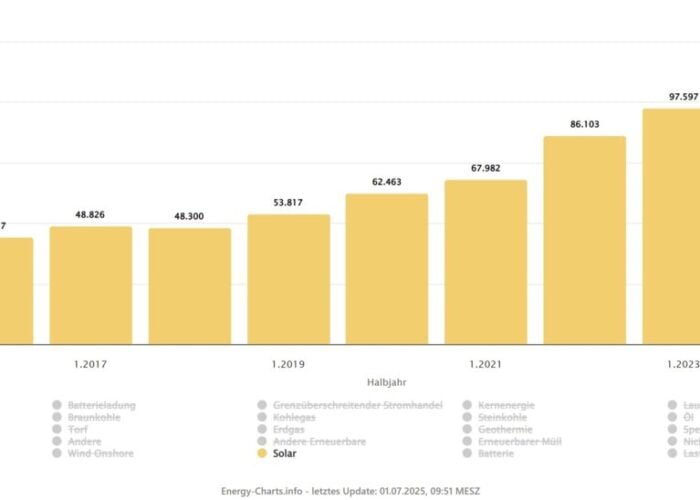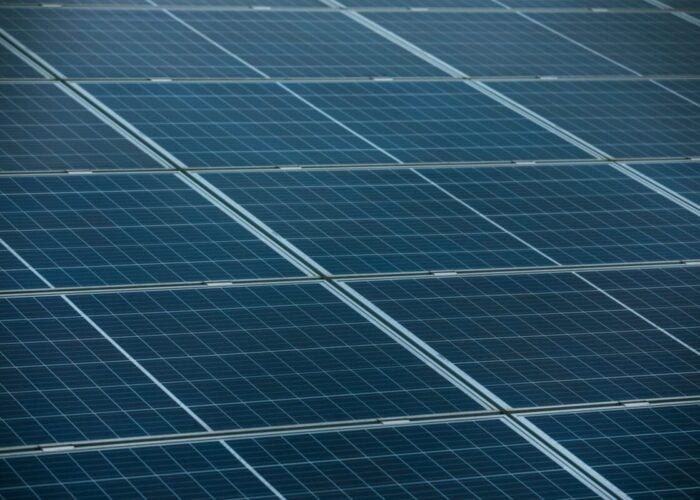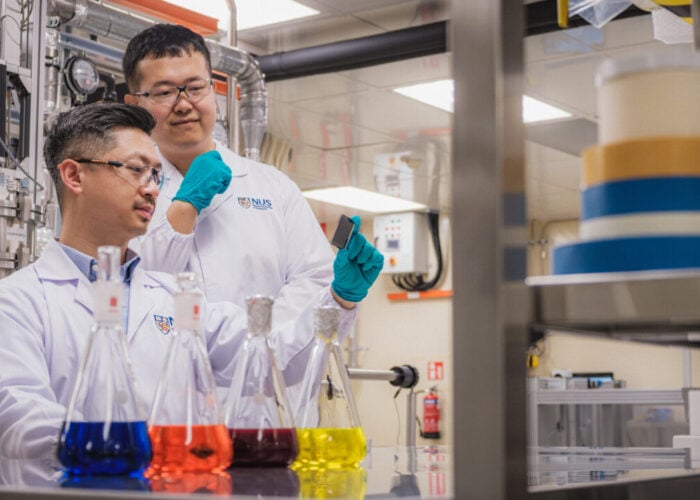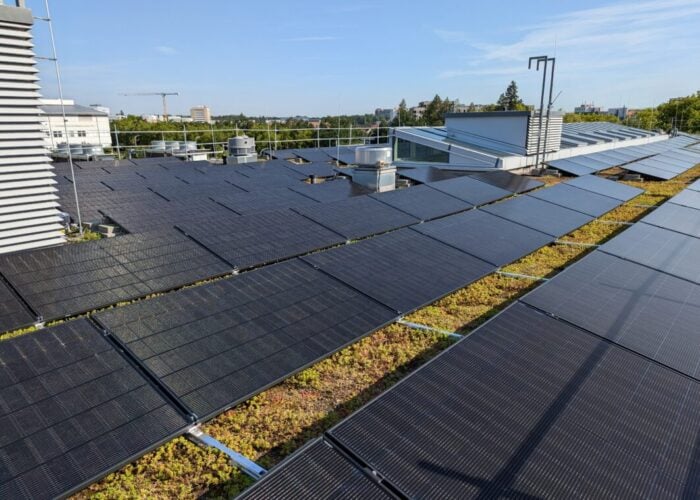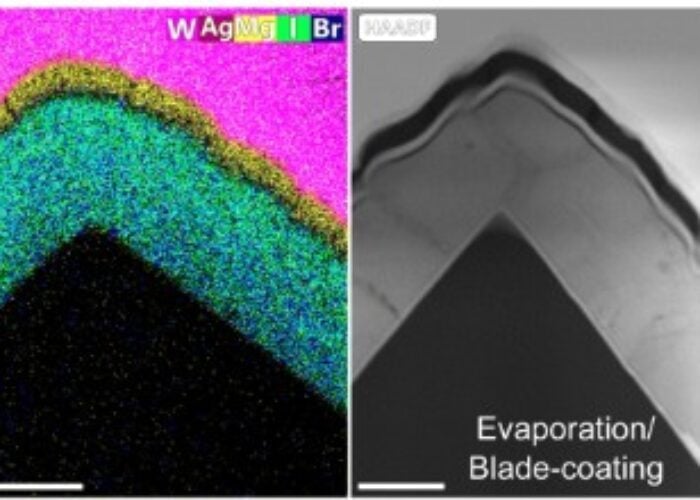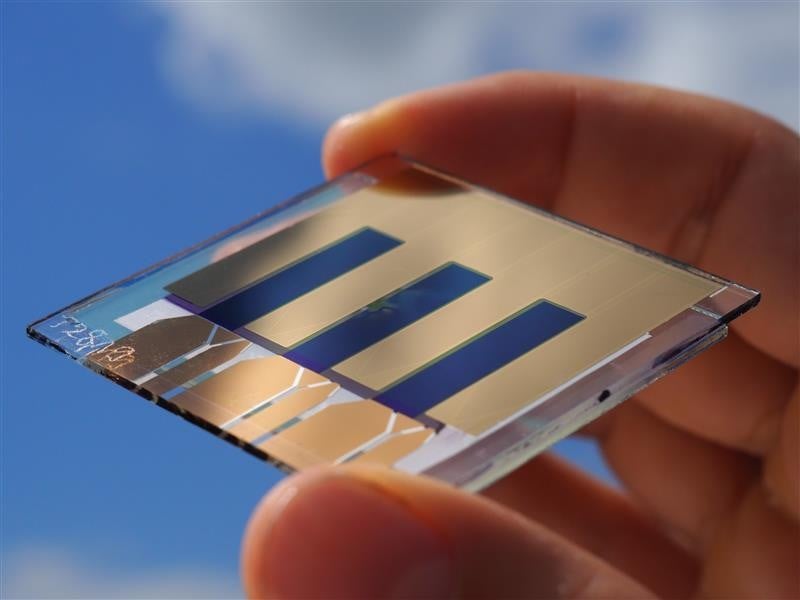
German research organisation Fraunhofer ISE and the Materials Research Center at the University of Freiburg have developed the world’s most efficient 1cm2 organic solar cell (OSC), with a conversion efficiency of 15.8%.
Dr Uli Würfel, department head at Fraunhofer and group head at the Materials Research Center explained that by applying an “anti-reflection coating” to the surface of the cell, it can absorb more light, improving its overall efficiency.
Unlock unlimited access for 12 whole months of distinctive global analysis
Photovoltaics International is now included.
- Regular insight and analysis of the industry’s biggest developments
- In-depth interviews with the industry’s leading figures
- Unlimited digital access to the PV Tech Power journal catalogue
- Unlimited digital access to the Photovoltaics International journal catalogue
- Access to more than 1,000 technical papers
- Discounts on Solar Media’s portfolio of events, in-person and virtual
The researchers also noted that the material used in this coating could have other uses in the solar sector, most notably in transparent solar modules, most often used as part of building-integrated PV structures. The team is working on a project known as “See-Through-PV” to find the most efficient form of transparent solar panel, and are considering the use of this coating as a building material in these panels due to its transparent nature. The research project is due to be completed in March 2025.
“Cross-thematic work is the great strength of the institute,” said Professor Dr Andreas Bett, institute director at Fraunhofer ISE, discussing the value of working with such a multi-disciplinary team. “Parallel in-house research on different photovoltaic technologies and their respective manufacturing processes inspires collaboration and synergy effects.”
This is not the first time that these research organisations have worked together on solar cell efficiency. These organisations previously held the record for the most efficient OSC of this size, producing a cell with a conversion efficiency of 14.9% in 2020, demonstrating the significant impact this anti-reflective coating has had on the overall productivity of the cell.
The news is notable for the OSC sector in general, which has struggled to grow in line with other kinds of cells due to concerns regarding the long-term efficiency of OSCs. Earlier this year, researchers from the Hong Kong Polytechnic University developed an OSC with a record-breaking conversion efficiency of 19.31%, and improvements in OSC efficiency could help alleviate some of these concerns held by would-be backers.

